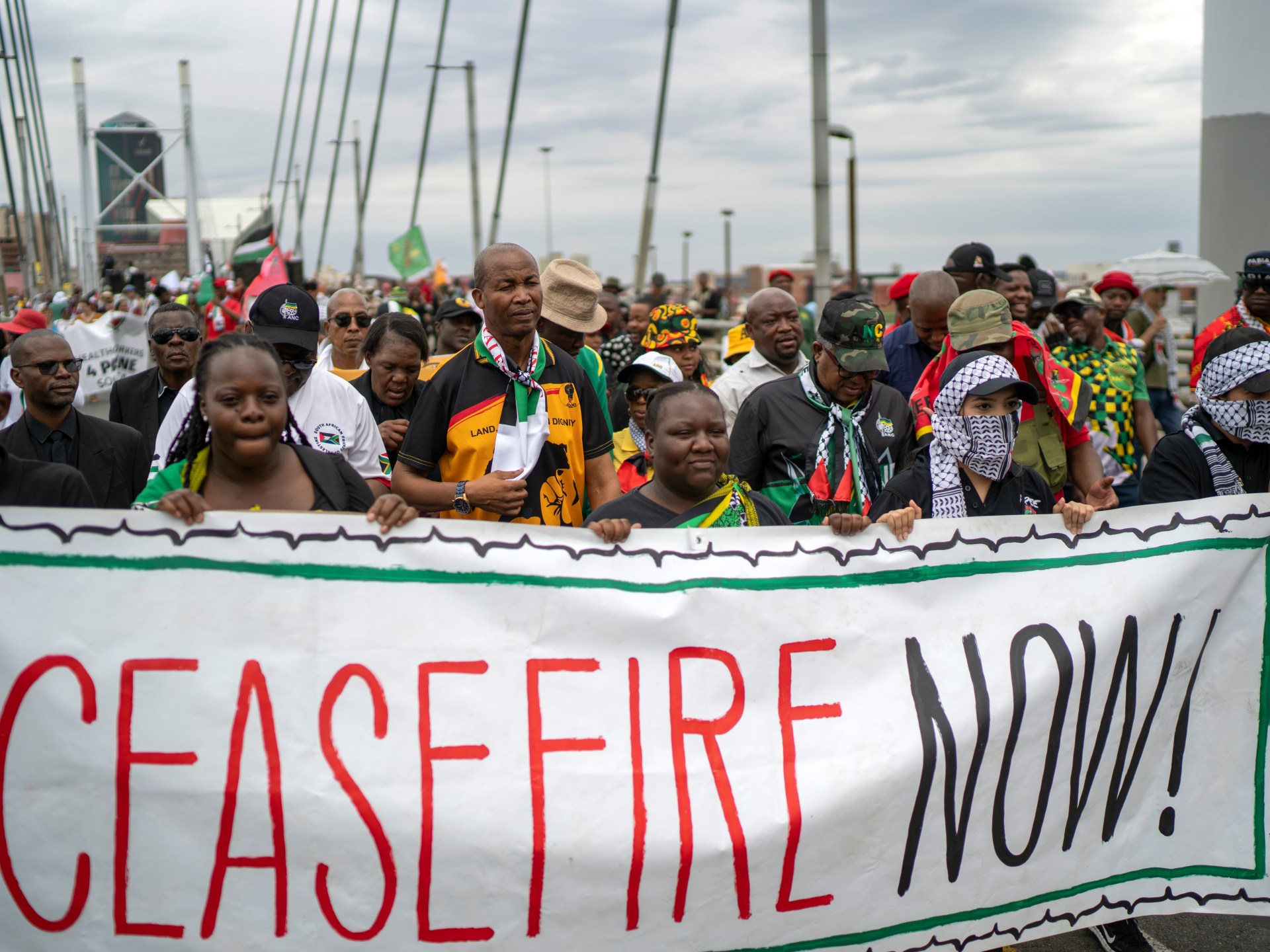#southafrica
‘It gave me a purpose’: Surf therapy transforms lives in South Africa
Waves for Change, which originated in South Africa, works with young people at high risk of 'toxic stress'.#Features #Sports #ChildRights #Health #MentalHealth #NGO #PovertyandDevelopment #Africa #SouthAfrica
‘It gave me a purpose’: Surf therapy transforms lives in South Africa
Sport Weekly: Child athletes on the joys and the perils of competing
This week Al Jazeera covers issues for child athletes, Eritrea's deserting footballers and scolded Pakistani cricketers.#Sports #Africa #Asia #Eritrea #Europe #Pakistan #SouthAfrica #Uganda #UnitedKingdom
Sport Weekly: Child athletes on the joys and the perils of competing
India’s Rohit and Kohli skip white-ball leg of South Africa cricket tour
BCCI say Rohit and Virat Kohli asked for a break from the white-ball leg of the eight-match multi-format tour.#Sports #Cricket #Africa #Asia #India #SouthAfrica
India’s Rohit and Kohli skip white-ball leg of South Africa cricket tour
South Africans demand permanent Gaza ceasefire during pro-Palestine march
Members of South African political parties and civil society organisations marched through the streets of Johannesburg on Wednesday demanding a permanent cea...#AlJazeera #AlJazeeraEnglish #CeasefireNow #FreePalestine #Gaza #GazaCeasefire #GazaSolidarity #GazaUnderAttack #GazaWar #InternationalPalestinesolidarityday #Israel #IsraelGazaWar #IsraelHamasWar #IsraelPalestineWar #IsraelWar #Palestine #SouthAfrica #alJazeera #aljazeeraEnglish #aljazeeralive #aljazeeravideo #aljazeeraEnglish #aljazeeralatest #aljazeeralive #aljazeeralivenews #gazagenocice #palestine #solidarity
South Africans demand permanent Gaza ceasefire during pro-Palestine march
South Africans demand permanent Gaza ceasefire during pro-Palestine march
Protesters marched through Johannesburg demanding a permanent ceasefire in Gaza, in solidarity with Palestine.#Israel-Palestineconflict #Africa #SouthAfrica
South Africans demand permanent Gaza ceasefire during pro-Palestine march

🇿🇦 The Struggle (1986)
Photography by Gideon Mendel
-> https://gideonmendel.com/stories-the-struggle/
#GideonMendel #squatter #camp #struggle #SouthAfrica #photo #art
Eleven people killed in accident at platinum mine in South Africa
Mine's operator said the lift accident happened as employees were leaving a shaft at the end of their shift.#Africa #SouthAfrica
Eleven people killed in accident at platinum mine in South Africa
South African gaming and esports surge

A new PwC report said African gaming and esports are expected to grow significantly in the next few years, with South Africa leading the pack (think that is across Africa).
The PwC Africa Entertainment and Media outlook revealed that South Africa leads the Nigerian and Kenyan markets in video games and esports revenue.
South Africa saw strong growth in these sectors in 2022. This was especially prominent within the esports category, with total revenue up 30% year-on-year.
I’m glad to see this category growing because as long as you have electricity, a fibre connection, and a reasonable computer, you can compete fairly equally. The only downside can be where latency times to Europe and the USA lag a bit. But we are seeing more and more gaming servers being established within South Africa.
Some of the most popular mobile games include PUBG Mobile, Clash of Kings and Call of Duty Mobile.
See https://mybroadband.co.za/news/investing/517201-south-african-gaming-and-esports-surge.html
#Blog, #esports, #gaming, #southafrica, #technology
‘You need to be tough’: Child athletes make history, but at what cost?
Records by child athletes have reignited debates around age restrictions at global sporting events such as the Olympics.#Features #Sports #Athletics #ChildRights #Olympics #Africa #AsiaPacific #China #Europe #Indonesia #Japan #Norway #Philippines #Singapore #SouthAfrica
‘You need to be tough’: Child athletes make history, but at what cost?
Oscar Pistorius granted parole a decade after killing girlfriend
The South African former Paralympic star, jailed in 2014 for killing Reeva Steenkamp, will be released in January.#Sports #Athletics #Crime #Olympics #Africa #SouthAfrica
Oscar Pistorius granted parole a decade after killing girlfriend

From the series A weapon of war (Congo).
Jodi Bieber

From the series Between dogs & wolves (South Africa).

From the series Between dogs & wolves (South Africa).
#JodiBieber #congo #SouthAfrica #portrait #scenes #street #photo #art
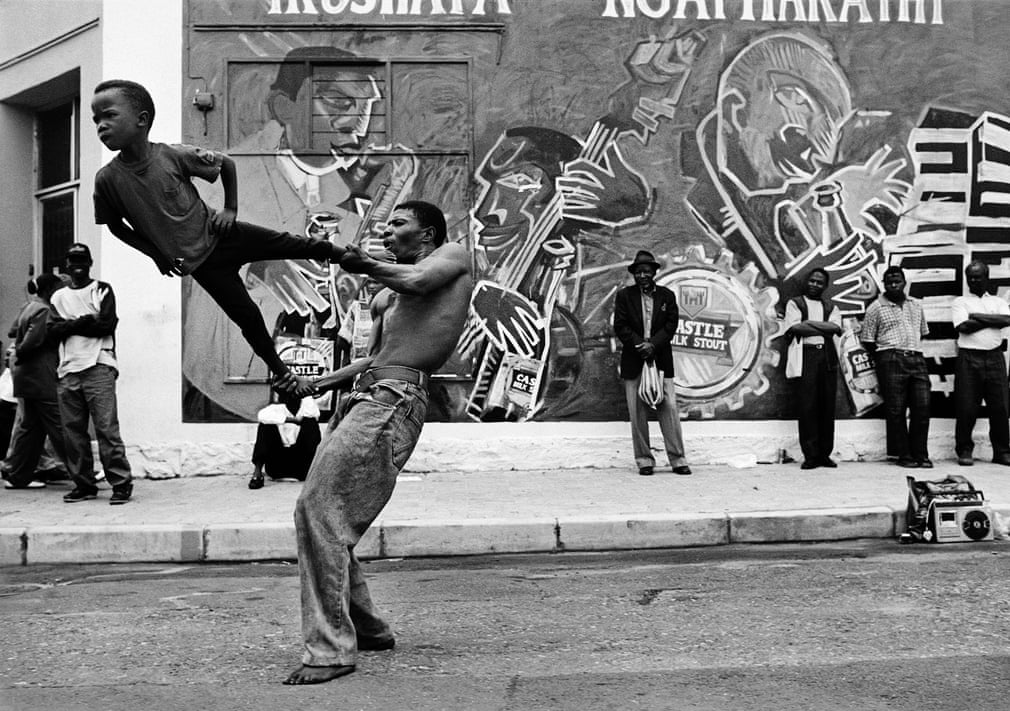
From the series Between dogs & wolves (South Africa).
BRICS condemns Israel war on Gaza in signal to the West
The grouping, which has previously focused on economic issues, called for an end to 'war crimes' in the Gaza conflict.#Features #Israel-Palestineconflict #Africa #Asia #India #Israel #MiddleEast #Palestine #SouthAfrica
BRICS condemns Israel war on Gaza in signal to the West
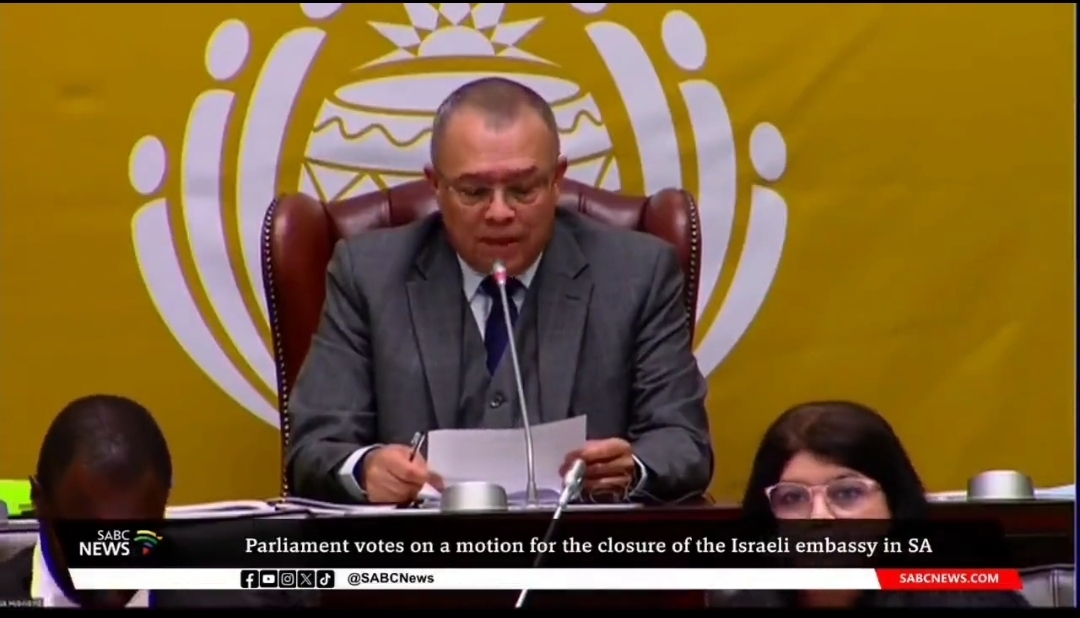
South Africa’s parliament votes (248 vs 91) to close the Israeli embassy in South Africa, send the Israeli ambassador home, and suspend diplomatic relations with #Israel.
In the mean time, Arab leaders watching the slaughter of palestinians in #Gaza and the occupied #WestBank without doing anything.
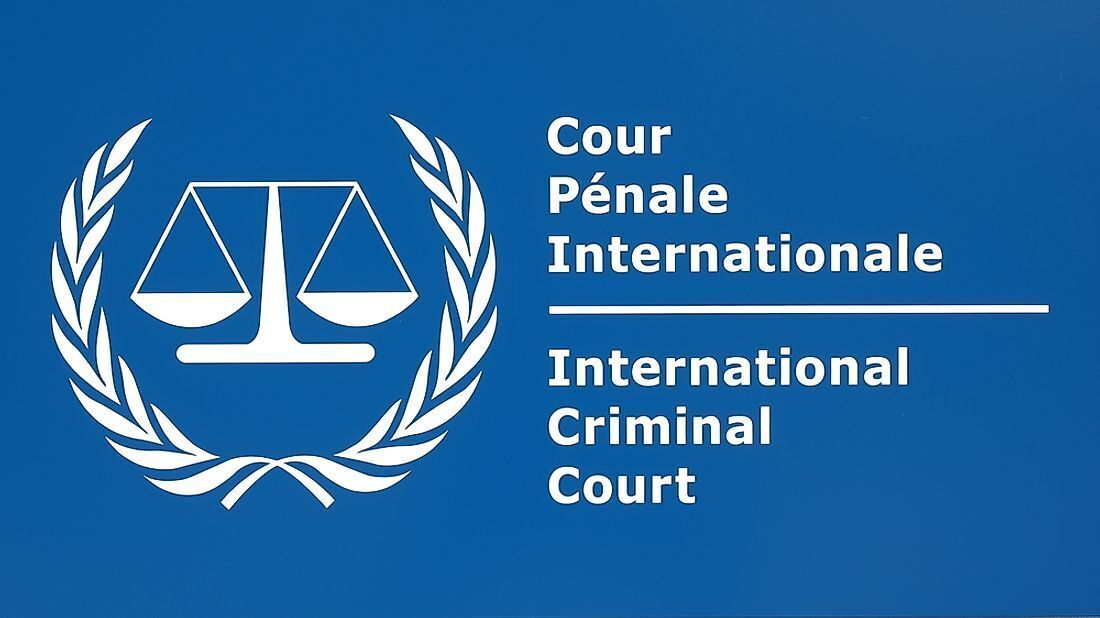
#Venezuela: We join #SouthAfrica, #Bangladesh, #Bolivia, #Comoros and #Djibouti in a lawsuit before the International Criminal Court ( #ICC) against the occupation entity ( #israel)
South Africa loses to Australia in ICC semifinal
Battle between two strong contenders with South Africa playing in four World Cups, Australia lifting trophy five times.#Sports #Cricket #ICCCricketWorldCup #Africa #Asia #AsiaPacific #Australia #India #SouthAfrica
South Africa loses to Australia in ICC semifinal
Australia edge South Africa to set up Cricket World Cup final with India
Australia win by three wickets in a tense chase of 213 to book a date with the unbeaten hosts in Ahmedabad on Sunday.#Sports #Cricket #ICCCricketWorldCup #Africa #Asia #AsiaPacific #Australia #India #SouthAfrica
Australia edge South Africa to set up Cricket World Cup final with India
Apartheid South Africa reached a tipping point, Israel will, too
After mass violence and death, white South Africans realised apartheid was unsustainable; Israelis will, too.#Opinions #Africa #Israel #MiddleEast #Palestine #SouthAfrica
Apartheid South Africa reached a tipping point, Israel will, too
S Africa’s ruling ANC to back opposition motion to close Israeli embassy
President Cyril Ramaphosa has called on the International Criminal Court to investigate Israel for war crimes in Gaza.#Conflict #CrimesAgainstHumanity #Gaza #Israel-Palestineconflict #Politics #Africa #Israel #MiddleEast #Palestine #SouthAfrica
S Africa’s ruling ANC to back opposition motion to close Israeli embassy
MyBroadband tested GeForce Now in South Africa — Play the latest games on nearly any PC or smartphone
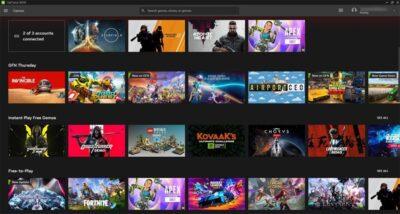
GeForce Now could be a game-changer for South African gamers desperate to play the latest popular titles without an expensive gaming PC or console. Instead of relying on local processing power, a graphics card, and storage to run a game, cloud gaming services use a dedicated gaming server in the cloud.
In South Africa, Nvidia has partnered with Rain for its local server rollout. Once they were signed up, they downloaded the GeForce Now app and linked the supported game libraries — Steam, Epic Games, and Ubisoft. GeForce Now already supports over 1,500 games, with more added weekly.
So, very interesting to see that this actually works quite well from a technical perspective.
What remains really is cost. The beta cost is an absolute no-brainer in terms of good value, but the final SA Price has not been announced. The US is paying $9 (R165) per month for a better graphics card.
But this also needs to be seen in context with these three issues:
- A higher -end gaming rig (which needs to be upgraded, say every 6 years) can be pretty expensive.
- I often buy a game and play it for only a shortish while. Then I’d need to buy a different game. There is one game I do play over 2+ years, but I don’t even play it every single month. NOTE: Seems you do have to still actually buy the game yourself, so the GeForce Now service gets you the hardware card.
- If it is a per-month subscription and not a mandatory 12-months say, you can play for two months and then stop for a month or two.
The game actually plays in a browser and I see, from the ArchWiki titled GeForce Now, that it may well play under Linux too. This may allow access to Windows-only games that don’t even run properly under Proton on Linux. The MyBroadband test though appeared to be using a GeForce Now app which I think is Windows only.
See https://mybroadband.co.za/news/gaming/514835-we-tested-geforce-now-in-south-africa-play-the-latest-games-on-nearly-any-pc-or-smartphone.html
#Blog, #gaming, #southafrica, #technology





